Organic Chemistry
Saccharides are organic compounds composed of carbon, hydrogen, and oxygen three elements. From the chemical structure, carbohydrates are polyhydroxy aldehydes, ketones or their polymers. Sugar widely present in the plant kingdom and it is a major component of plant material which plays an important role in physiological and biochemical processes in plants. According to the structure, saccharides can be divided into simple sugars (including glucose, fructose, and galactose), disaccharides (including sucrose, maltose, and lactose etc.) and polysaccharides (including starch, liver glycogen and muscle glycogen, etc.). Monosaccharides are simplest carbohydrates, a polyhydroxy aldehydes or polyhydroxy ketones which can not be hydrolyzed any more. They are commonly called aldoses and ketoses. For instance, glucose is an aldohexose, fructose is a ketohexose, and ribose is an aldopentose. The number of carbon atoms in the monosaccharide is no more than 10. Naturally occurring monosaccharides are 5 to 6 carbon atoms. Disaccharide is a combination of two monosaccharide molecules by removal of a molecule of H2O. The polysaccharide is made up of hundreds or even thousands of glucose molecules. After complete hydrolysis of polysaccharides, thousands of monosaccharide molecules such as starch cellulose and the like is emerging. Saccharide compounds closely related to human life. sugar is the main source of human energy. Saccharide is also closely related with drugs. For example, the patient needs glucose injection, dextran for plasma preparations; production of tablets commonly used starch as excipients; saccharides contained in some traditional Chinese medicine has a physiological activity, such as Poria Charges carbohydrate on mice sarcoma S100 which have a strong inhibition PUPS ; lentinan also strong inhibition of tumor.
Saccharides are the major products of photosynthesis of green plants, a major source of energy needed to maintain the life of animals and plants, an indispensable diet for human and animal. Saccharides are also important raw materials on the industry, and they are used in the construction paper pharmaceutical and food sectors. Processing them directly and indirectly can meet the needs of basic necessities of human and other aspects. Recent studies of carbohydrates in two directions:
① carbohydrate chemists dedicated to synthetic compounds, primarily for long-term plans for social development to make human food possible to gradually get rid of dependence on agriculture. This synthetic task is to seek ways to change the current situation of natural photosynthesis in plants alone and to be economically viable.
② To study the relationship of saccharide and life is because proteins, nucleic acids often inseparable from sugar in the body. The mystery carbohydrate compound in the living body will be uncovered.
- Structure:
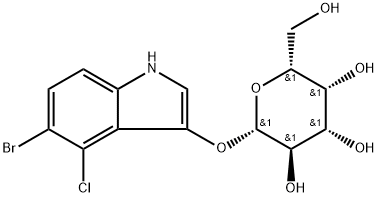
- Chemical Name:5-Bromo-4-chloro-3-indolyl-beta-D-galactoside
- CAS:7240-90-6
- MF:C14H15BrClNO6
- Structure:
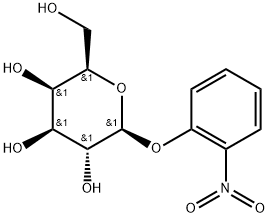
- Chemical Name:2-Nitrophenyl-beta-D-galactopyranoside
- CAS:369-07-3
- MF:C12H15NO8
- Structure:
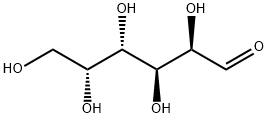
- Chemical Name:D-Galactose
- CAS:59-23-4
- MF:C6H12O6
- Structure:
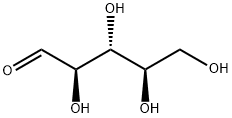
- Chemical Name:D-Ribose
- CAS:50-69-1
- MF:C5H10O5
- Structure:
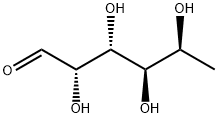
- Chemical Name:L-Fucose
- CAS:2438-80-4
- MF:C6H12O5
- Structure:

- Chemical Name:Chitosan
- CAS:9012-76-4
- MF:C6H11NO4X2
- Structure:
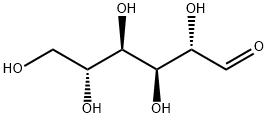
- Chemical Name:D-Mannose
- CAS:3458-28-4
- MF:C6H12O6
- Structure:
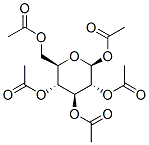
- Chemical Name:β-D-Glucose pentaacetate
- CAS:604-69-3
- MF:C16H22O11
- Structure:

- Chemical Name:α-Cyclodextrin
- CAS:10016-20-3
- MF:C36H60O30
- Structure:
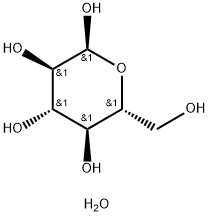
- Chemical Name:D(+)-GLUCOSE MONOHYDRATE
- CAS:14431-43-7
- MF:C6H14O7
- Structure:
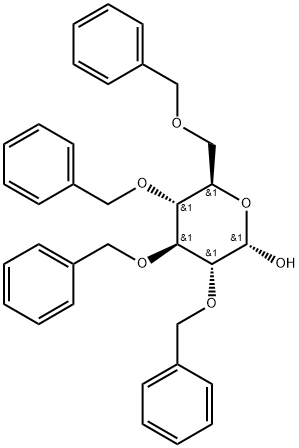
- Chemical Name:2,3,4,6-TETRA-O-BENZYL-ALPHA-D-GLUCOPYRANOSE
- CAS:6564-72-3
- MF:C34H36O6
- Structure:
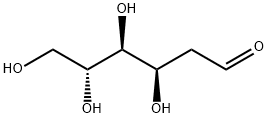
- Chemical Name:2-Deoxy-D-glucose
- CAS:154-17-6
- MF:C6H12O5
- Structure:

- Chemical Name:2,6-DI-O-METHYL-BETA-CYCLODEXTRIN
- CAS:51166-71-3
- MF:C56H98O35
- Structure:

- Chemical Name:GENTIOBIOSE
- CAS:554-91-6
- MF:C12H22O11
- Structure:
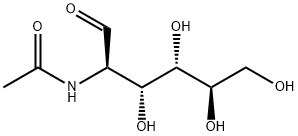
- Chemical Name:N-Acetyl-D-Glucosamine
- CAS:7512-17-6
- MF:C8H15NO6
- Structure:
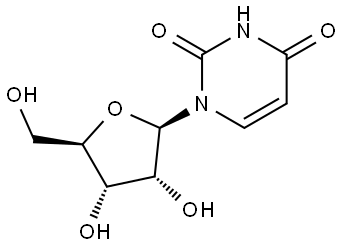
- Chemical Name:Uridine
- CAS:58-96-8
- MF:C9H12N2O6
- Structure:
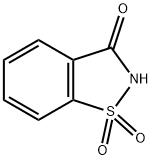
- Chemical Name:Saccharin
- CAS:81-07-2
- MF:C7H5NO3S
- Structure:
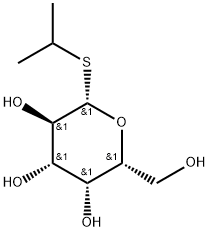
- Chemical Name:IPTG
- CAS:367-93-1
- MF:C9H18O5S
- Structure:
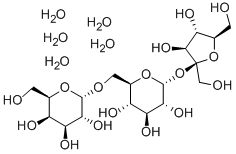
- Chemical Name:D(+)-Raffinose pentahydrate
- CAS:17629-30-0
- MF:C18H42O21
- Structure:
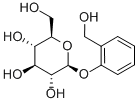
- Chemical Name:D-(-)-Salicin
- CAS:138-52-3
- MF:C13H18O7
- Structure:
- Chemical Name:beta-(1,3)-D-Glucan
- CAS:9012-72-0
- MF:C18H30O14X2
- Structure:
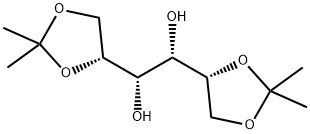
- Chemical Name:1,2:5,6-Bis-O-(1-methylethylidene)-D-mannitol
- CAS:1707-77-3
- MF:C12H22O6
- Structure:
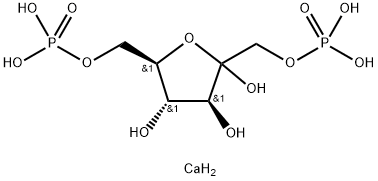
- Chemical Name:D-Fructose-1,6-diphoshate calcium salt
- CAS:103213-33-8
- MF:C6H16CaO12P2
- Structure:

- Chemical Name:FERROUS GLUCONATE DIHYDRATE
- CAS:12389-15-0
- MF:C12H26FeO16
- Structure:
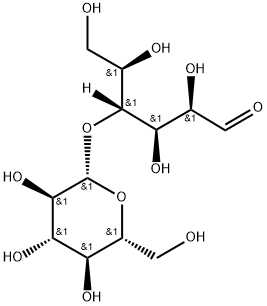
- Chemical Name:D-(+)-Cellobiose
- CAS:528-50-7
- MF:C12H22O11
- Structure:
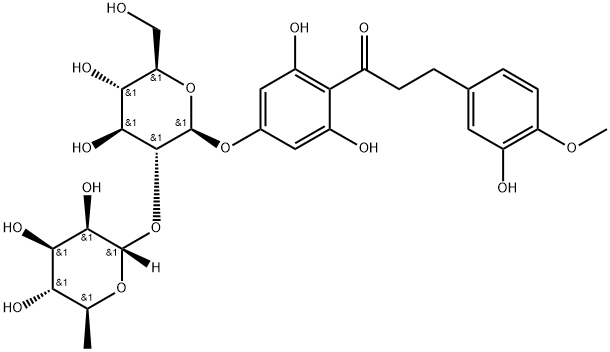
- Chemical Name:Neosperidin dihydrochalcone
- CAS:20702-77-6
- MF:C28H36O15
- Chemical Name:Pectin
- CAS:9000-69-5
- MF:C6H12O6
- Structure:
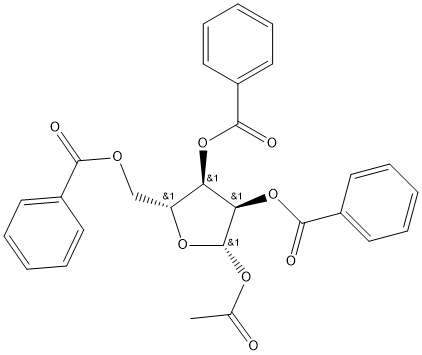
- Chemical Name:beta-D-Ribofuranose 1-acetate 2,3,5-tribenzoate
- CAS:6974-32-9
- MF:C28H24O9
- Structure:

- Chemical Name:L-Threonic acid calcium salt
- CAS:70753-61-6
- MF:C8H14CaO10
- Structure:
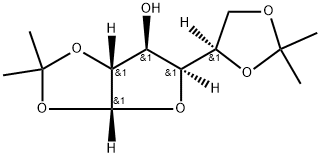
- Chemical Name:Diacetone-D-glucose
- CAS:582-52-5
- MF:C12H20O6
- Structure:
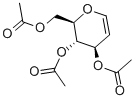
- Chemical Name:Tri-O-acetyl-D-glucal
- CAS:2873-29-2
- MF:C12H16O7
- Structure:
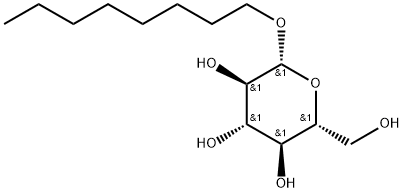
- Chemical Name:n-Octyl-β-D-glucopyranoside
- CAS:29836-26-8
- MF:C14H28O6
- Structure:
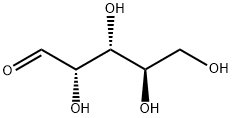
- Chemical Name:D-(-)-Arabinose
- CAS:10323-20-3
- MF:C5H10O5
- Structure:
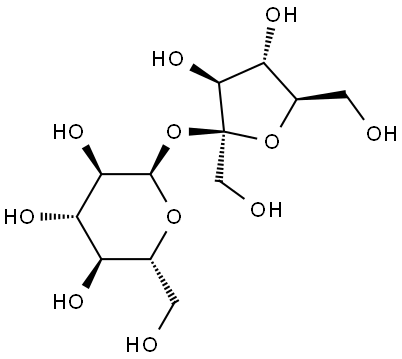
- Chemical Name:Sucrose
- CAS:57-50-1
- MF:C12H22O11
- Structure:
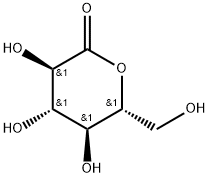
- Chemical Name:D-(+)-Glucono-1,5-lactone
- CAS:90-80-2
- MF:C6H10O6
- Structure:
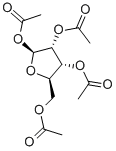
- Chemical Name:beta-D-Ribofuranose 1,2,3,5-tetraacetate
- CAS:13035-61-5
- MF:C13H18O9
- Structure:
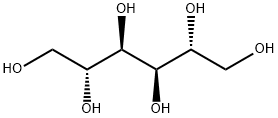
- Chemical Name:Mannitol
- CAS:87-78-5
- MF:C6H14O6
- Structure:
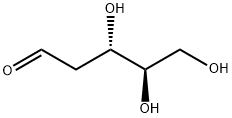
- Chemical Name:2-Deoxy-D-ribose
- CAS:533-67-5
- MF:C5H10O4
- Structure:
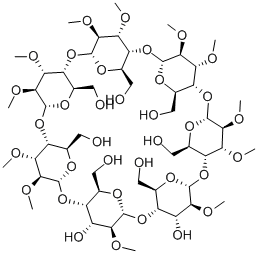
- Chemical Name:beta-Cyclodextrin methyl ethers
- CAS:128446-36-6
- MF:C54H94O35
- Structure:
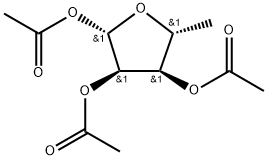
- Chemical Name:1,2,3-Triacetyl-5-deoxy-D-ribose
- CAS:62211-93-2
- MF:C11H16O7
- Structure:
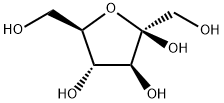
- Chemical Name:D(-)-Fructose
- CAS:57-48-7
- MF:C6H12O6
- Structure:

- Chemical Name:2-Hydroxypropyl-β-cyclodextrin
- CAS:128446-35-5
- MF:C63H112O42
- Structure:
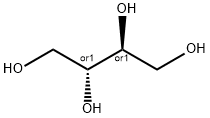
- Chemical Name:Erythritol
- CAS:149-32-6
- MF:C4H10O4
- Structure:
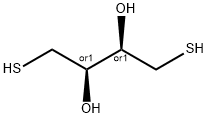
- Chemical Name:DL-Dithiothreitol
- CAS:3483-12-3
- MF:C4H10O2S2
- Structure:

- Chemical Name:alpha-D-Methylglucoside
- CAS:97-30-3
- MF:C7H14O6
- Structure:
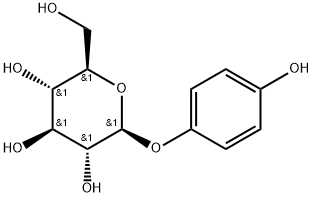
- Chemical Name:Arbutin
- CAS:497-76-7
- MF:C12H16O7
- Structure:
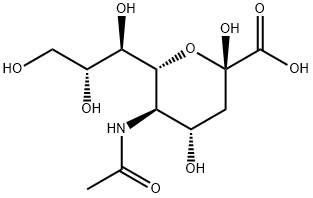
- Chemical Name:N-Acetylneuraminic acid
- CAS:131-48-6
- MF:C11H19NO9
- Structure:
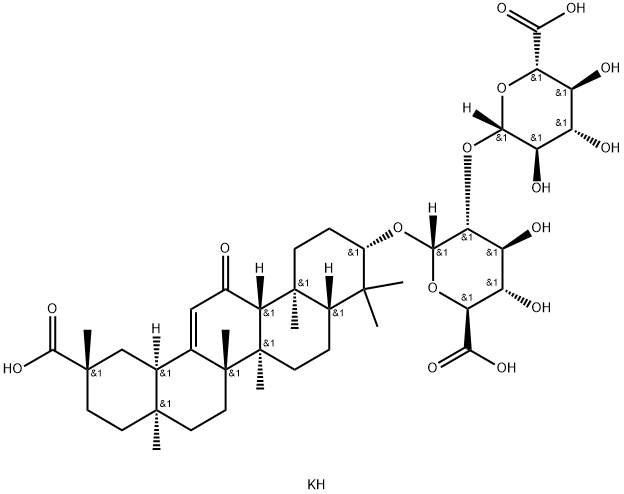
- Chemical Name:Dipotassium glycyrrhizinate
- CAS:68797-35-3
- MF:C42H63KO16
- Structure:
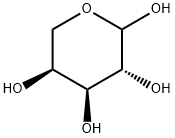
- Chemical Name:L-Arabinose
- CAS:87-72-9
- MF:C5H10O5
- Structure:
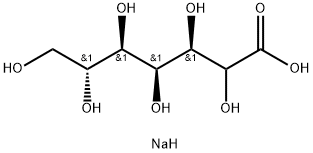
- Chemical Name:Sodium glucoheptonate
- CAS:31138-65-5
- MF:C7H15NaO8
- Structure:
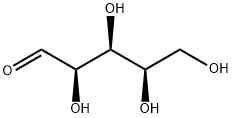
- Chemical Name:D(+)-Xylose
- CAS:58-86-6
- MF:C5H10O5
- Structure:
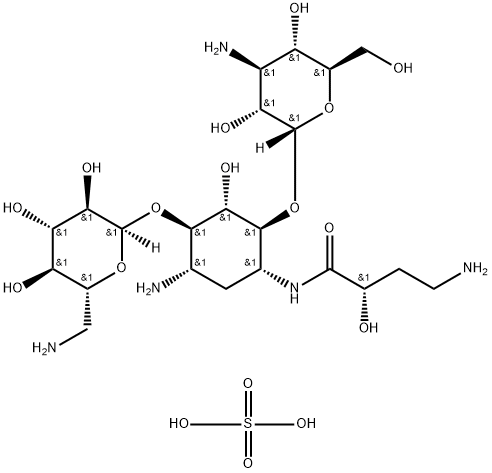
- Chemical Name:Amikacin Disulfate
- CAS:39831-55-5
- MF:C22H45N5O17S
- Structure:
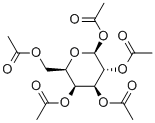
- Chemical Name:beta-D-Galactose pentaacetate
- CAS:4163-60-4
- MF:C16H22O11
- Structure:
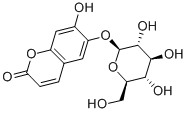
- Chemical Name:Esculin
- CAS:531-75-9
- MF:C15H16O9
- Structure:
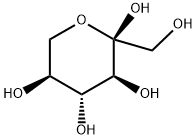
- Chemical Name:L-(-)-SORBOSE
- CAS:87-79-6
- MF:C6H12O6
- Structure:
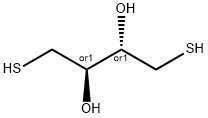
- Chemical Name:Dithioerythritol
- CAS:6892-68-8
- MF:C4H10O2S2
- Structure:
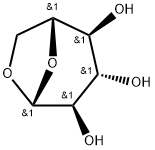
- Chemical Name:1,6-ANHYDRO-BETA-D-GLUCOPYRANOSE
- CAS:498-07-7
- MF:C6H10O5
- Structure:
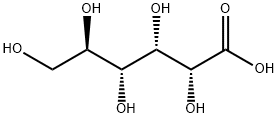
- Chemical Name:Gluconic acid
- CAS:526-95-4
- MF:C6H12O7
- Structure:

- Chemical Name:L(+)-Rhamnose monohydrate
- CAS:10030-85-0
- MF:C6H14O6
- Structure:
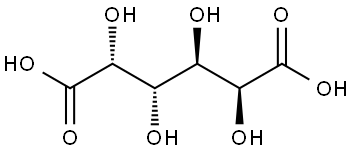
- Chemical Name:MUCIC ACID
- CAS:526-99-8
- MF:C6H10O8
- Structure:

- Chemical Name:Diacetonefructose
- CAS:20880-92-6
- MF:C12H20O6
- Structure:

- Chemical Name:3,4,6-Tri-O-acetyl-D-galactal
- CAS:4098-06-0
- MF:C12H16O7
- Structure:
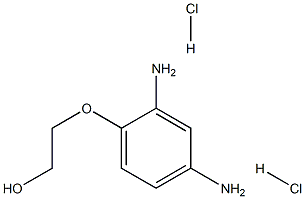
- Chemical Name:Xanthan gum
- CAS:11138-66-2
- MF:C8H14Cl2N2O2
- Structure:
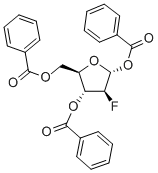
- Chemical Name:2-Deoxy-2-fluoro-1,3,5-tri-O-benzoyl-D-ribofuranose
- CAS:97614-43-2
- MF:C26H21FO7
- Structure:
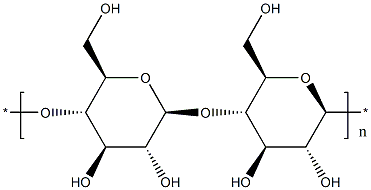
- Chemical Name:Microcrystalline cellulose
- CAS:9004-34-6
- MF:(C12H20O10)n
- Structure:
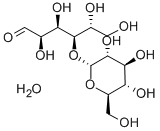
- Chemical Name:D-(+)-Maltose monohydrate
- CAS:6363-53-7
- MF:C12H24O12
- Structure:
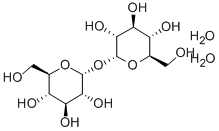
- Chemical Name:D(+)-Trehalose dihydrate
- CAS:6138-23-4
- MF:C12H22O11·2H2O
- Structure:

- Chemical Name:4-Nitrophenyl-beta-D-galactopyranoside
- CAS:3150-24-1
- MF:C12H15NO8
- Structure:

- Chemical Name:6-O-ALPHA-MALTOSYL-BETA-CYCLODEXTRIN HYDRATE
- CAS:104723-60-6
- MF:C54H90O45
- Structure:
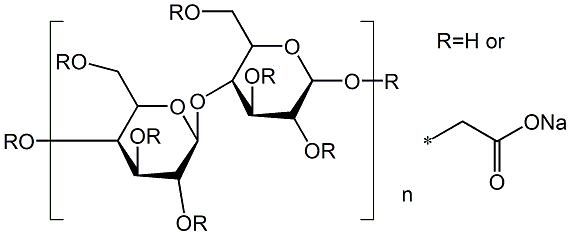
- Chemical Name:Sodium carboxymethyl cellulose
- CAS:9004-32-4
- MF:C6H7O2(OH)2CH2COONa
- Structure:
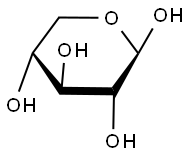
- Chemical Name:XYLAN
- CAS:9014-63-5
- MF:C5H10O5
- Structure:
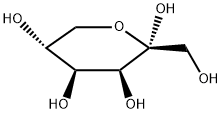
- Chemical Name:D-tagatose
- CAS:87-81-0
- MF:C6H12O6
- Structure:

- Chemical Name:D-Galactal
- CAS:21193-75-9
- MF:C6H10O4
- Structure:
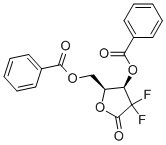
- Chemical Name:2-Deoxy-2,2-difluoro-D-erythro-pentafuranous-1-ulose-3,5-dibenzoate
- CAS:122111-01-7
- MF:C19H14F2O6
- Structure:
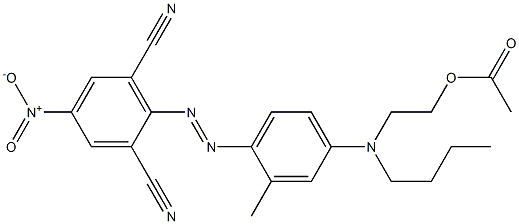
- Chemical Name:Ethyl cellulose
- CAS:9004-57-3
- MF:C23H24N6O4
- Structure:
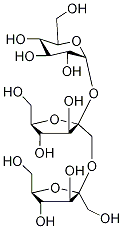
- Chemical Name:INULIN
- CAS:9005-80-5
- MF:C18H32O16
- Structure:
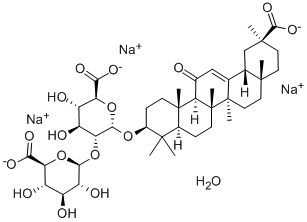
- Chemical Name:GLYCYRRHIZIC ACID TRISODIUM SALT HYDRATE
- CAS:71277-78-6
- MF:C42H61Na3O17
- Structure:
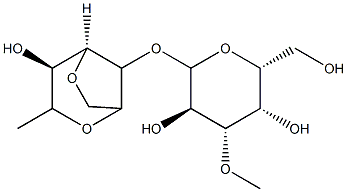
- Chemical Name:Agar
- CAS:9002-18-0
- MF:C14H24O9
- Structure:
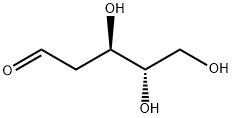
- Chemical Name:2-Deoxy-L-ribose
- CAS:18546-37-7
- MF:C5H10O4
- Structure:
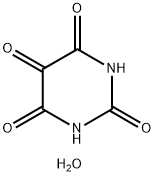
- Chemical Name:ALLOXAN MONOHYDRATE
- CAS:2244-11-3
- MF:C4H4N2O5
- Structure:
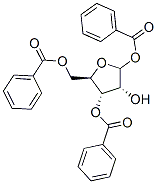
- Chemical Name:1,3,5-Tri-O-benzoyl-D-ribofuranose
- CAS:22224-41-5
- MF:C26H22O8
- Structure:
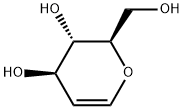
- Chemical Name:D-Glucal
- CAS:13265-84-4
- MF:C6H10O4
- Structure:
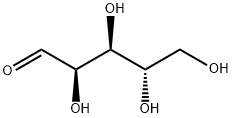
- Chemical Name:L-Arabinose
- CAS:5328-37-0
- MF:C5H10O5
- Structure:
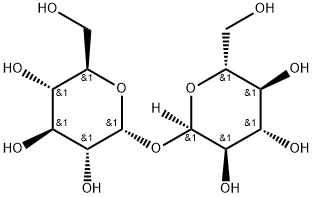
- Chemical Name:Trehalose
- CAS:99-20-7
- MF:C12H22O11
- Structure:
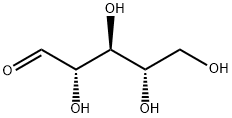
- Chemical Name:L-Ribose
- CAS:24259-59-4
- MF:C5H10O5
- Structure:
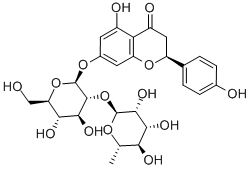
- Chemical Name:Naringin
- CAS:10236-47-2
- MF:C27H32O14
- Structure:
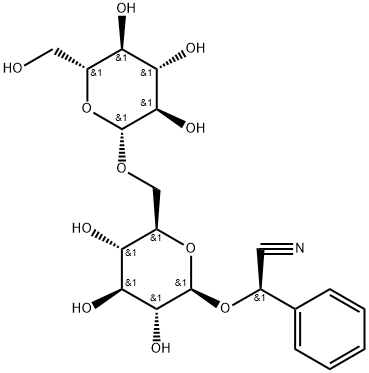
- Chemical Name:Amygdalin
- CAS:29883-15-6
- MF:C20H27NO11
- Structure:
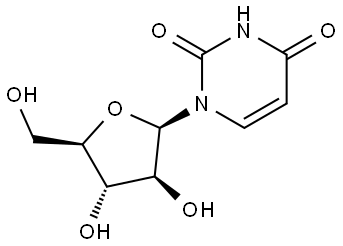
- Chemical Name:1-beta-D-Arabinofuranosyluracil
- CAS:3083-77-0
- MF:C9H12N2O6
- Structure:
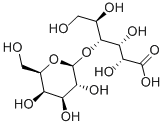
- Chemical Name:Lactobionic acid
- CAS:96-82-2
- MF:C12H22O12
- Structure:
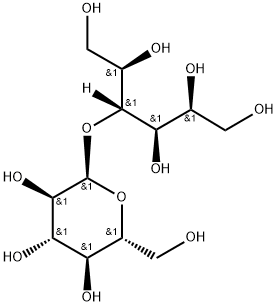
- Chemical Name:Maltitol
- CAS:585-88-6
- MF:C12H24O11
- Structure:
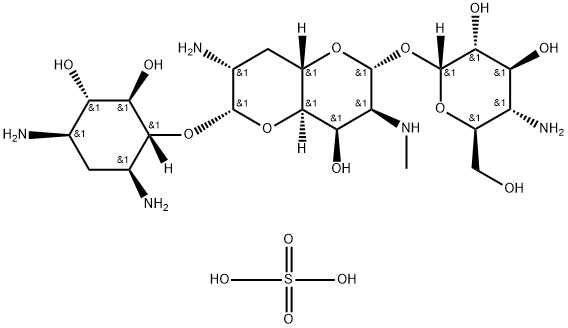
- Chemical Name:Apramycin sulfate
- CAS:65710-07-8
- MF:C21H43N5O15S
- Structure:
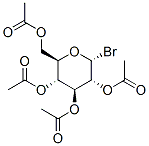
- Chemical Name:2,3,4,6-Tetra-O-acetyl-alpha-D-glucopyranosyl bromide
- CAS:572-09-8
- MF:C14H19BrO9
- Structure:

- Chemical Name:1-DEOXY-1-(OCTYLAMINO)-D-GLUCITOL
- CAS:23323-37-7
- MF:C14H31NO5
- Structure:
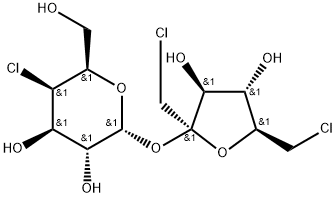
- Chemical Name:Sucralose
- CAS:56038-13-2
- MF:C12H19Cl3O8
- Structure:
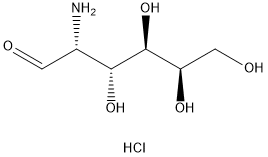
- Chemical Name:D(+)-Galactosamine hydrochloride
- CAS:1772-03-8
- MF:C6H14ClNO5
- Structure:
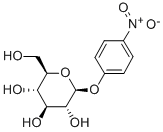
- Chemical Name:4-NITROPHENYL-BETA-D-GLUCOPYRANOSIDE
- CAS:2492-87-7
- MF:C12H15NO8
- Structure:
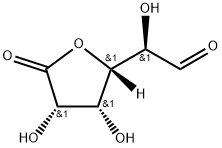
- Chemical Name:D-Glucurone
- CAS:32449-92-6
- MF:C6H8O6
- Structure:
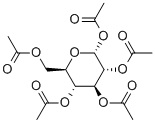
- Chemical Name:Glucose pentaacetate
- CAS:604-68-2
- MF:C16H22O11
- Structure:

- Chemical Name:γ-Cyclodextrin
- CAS:17465-86-0
- MF:C48H80O40
- Structure:

- Chemical Name:Chitin
- CAS:1398-61-4
- MF:C6H11NO4X2